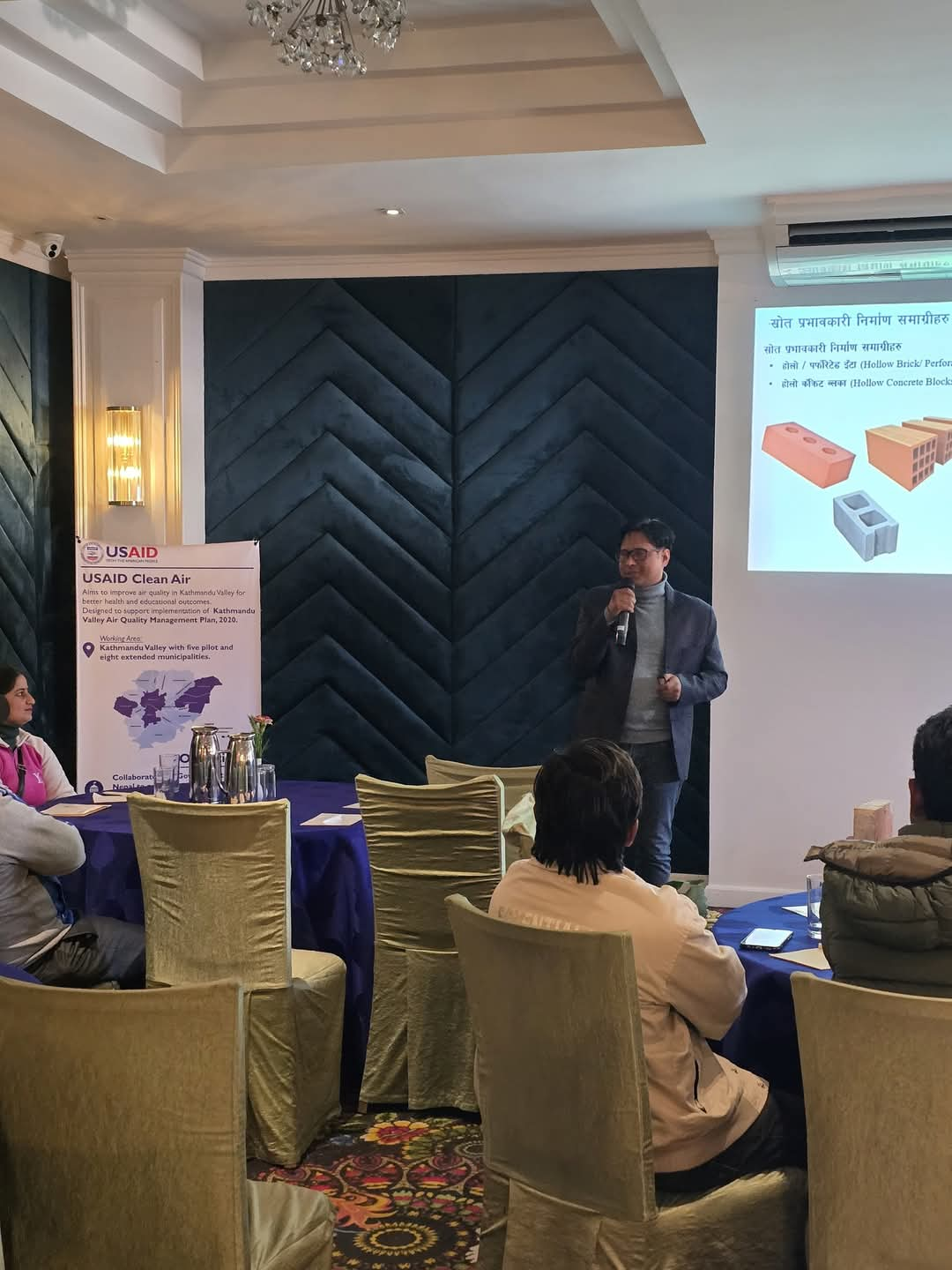In a significant step towards sustainable construction practices, the Building Energy Efficiency in Nepal (BEEN) project, in collaboration with USAID Nepal Clean Air and FHI 360, successfully conducted two 2-day training sessions on Hollow Brick Marketing for depot salespersons.
The training sessions aimed to equip participants with the skills and knowledge needed to effectively promote energy-efficient building designs, sustainable construction practices, and resource-efficient hollow bricks in Nepal's growing market. With hollow bricks offering improved thermal insulation and reduced resource consumption compared to traditional materials, their adoption marks a critical advancement toward sustainable urban development.
Participants demonstrated notable enthusiasm and commitment throughout the sessions, which focused on the practical benefits of hollow bricks, marketing strategies, and their role in fostering a greener future.
The program was further supported by EU SWITCH-Asia Programme, European Union in Nepal, Greentech Knowledge Solutions (GKSPL), and the Fakultät für Technische Wissenschaften - Universität Innsbruck. Stakeholders emphasized the importance of empowering the workforce to drive awareness and adoption of sustainable construction materials.
A spokesperson for the BEEN project remarked, "This initiative not only enhances the professional capabilities of depot salespersons but also strengthens the push for resource-efficient construction solutions in Nepal. Promoting hollow bricks can significantly contribute to Nepal’s clean air and climate goals."
The training aligns with Nepal’s broader efforts to combat environmental challenges and reduce emissions from the construction sector. As hollow bricks gain traction, they are expected to play a pivotal role in enhancing energy efficiency and ensuring long-term sustainability in urban development.
The collaborative efforts of BEEN, USAID Nepal, FHI 360, and other partners underline a shared commitment to building a sustainable future.